Prince Charles has launched a blistering attack on companies that are actively seeking to delay progress on preventing runaway climate change. Highlighting the need for a radical shift in the way the economy is run, he said that over the past decade he has been met by either indifference from mainstream business leaders and economists, or outright opposition.
Pointing out that science had proved beyond doubt the terrifying impacts of inaction, he called on executives to collapse the chasm between how they acted at home and what they were prepared to do in the office.
“We need to start integrating the business public self with the private family self,” he told a meeting of the Corporate Leaders Group. “So that when you go home in the evenings, perhaps you think a little bit about what you are doing and whether it is the right way to go.”
A decade ago, the prince said few businesses were contemplating the transformative changes required to achieve sustainability, with the majority “actively delaying progress by equating environmental action with damage to their balance sheets.”
In the more than 100 meetings and seminars he has attended since then, the prince said he had “experienced every sort of reaction to the suggestions from myself and many others that time is running out. The negative reactions have ranged from polite indifference to the pronouncement by an economist – who else - that I was ‘the enemy of the enlightenment’.”
Saying that humanity is now in a battle about how we survive as a species, he called on executives to join forces with NGOs to put pressure on political leaders to be more courageous ahead of the Paris climate change talks in December. In particular, he welcomed the decision of the Corporate Leaders Group, which he founded a decade ago, to join forces with other business coalitions, such as We Mean Business, to bring more pressure to bear.
“Forward-thinking businesses are ever more determined that they are going to be a part of the solution to climate change, and they are acting to show that this is true,” the prince said.
“So in the last ten years significant progress has been made and the consensus to strengthen climate action is broader and stronger than ever before. But is that consensus broad enough and strong enough?”
Speaking of the need to divert finances away from fossil fuels to a low carbon economy, the prince highlighted the importance of the insurance sector, pension funds and sovereign wealth funds.
“Once they are fully engaged – and it seems to be taking an inordinate amount of time to get to that point – they have the vision, the skills and the capacity to drive real change,” he said.
The transition to a low carbon economy will, he added, require a complete transformation of our relationship with energy, and action is required on the distorting impact of the subsidies received by the fossil fuel industry.
He also urged for an acceleration in the implementation of a circular economy model in order to ensure a greater emphasis on resource efficiency, saying that the world needed to move “from the take, make and dispose approach adopted in a linear economic model to the make, use and recover of the circular economies. This whole process of transition will have to be undertaken with great care and sensitivity to manage the impact of changes on jobs and local economies.”
Challenging those who argue changes in the economic model would cost a fortune, he said he had been told that well over half of the emissions savings required over the next 15 years to keep warming below 2C would create economic benefits that exceed their costs.
The prince complained about the negative impacts of siloed thinking that separated environmental issues from development goals and pointed to numerous examples of how these issues are interconnected.
In particular he referred to deforestation in the Amazon being almost certainly the prime cause of a desperate drought in Sao Paolo and how the survival of coastal communities in Africa and Asia is threatened by industrial-scale fishing.
“There are many, many more examples of just how desperate these inextricably linked social and environmental problems have become,” he said. “Even in a world full of daunting perils and crises, it is hard to imagine greater challenges for humanity.”
The leadership hub is funded by Xyntéo. All content is editorially independent except for pieces labelled ‘brought to you by’. Find out more here.
Join the community of sustainability professionals and experts. Become a GSB member to get more stories like this direct to your inbox.
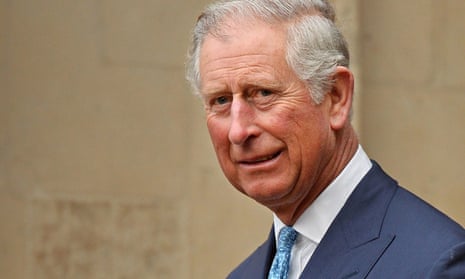

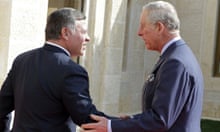
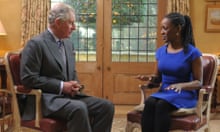
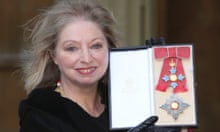
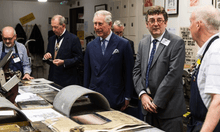
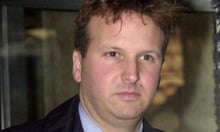
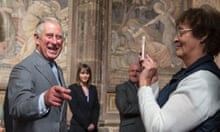

Comments (…)
Sign in or create your Guardian account to join the discussion